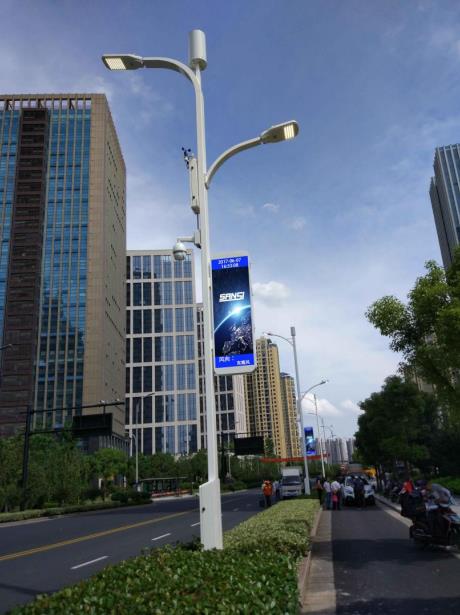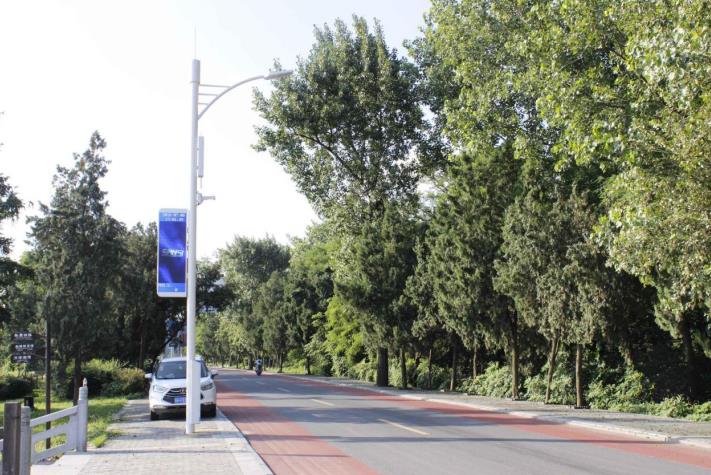Sansi LED: Sustainable LED Lighting and Integrated LED Display
Delivering premium and professional LED Display, LED Lighting, Smart City Integration solutions, trusted by over 60,000 companies worldwide everyday. From industrial lighting to commercial lighting, from outdoor advertising to XR & VR production, Sansi LED greatly improves the quality and sustainability of your business with 30 years of expert experiences.
With the deepening advancement of urban digital transformation, Shanghai Sansi's smart streetlight system is using innovative technology as its core driving force to reshape the service form of urban public spaces. Through the deep integration of the Internet of Things, AI algorithms, and green energy technologies, this system has not only become the "smart hub" of urban infrastructure but also opened up new paths in the fields of ecological protection and people's livelihood services, helping to create a livable, resilient, and sustainable modern city model.

Breakthroughs in the Integration of Technology and Ecology
Smart Poles Constructing an Ecological Sensing Network
Smart streetlights integrate environmental monitoring modules to collect real-time data on air quality, temperature and humidity, noise, and other dynamics. They are also linked to the urban management platform to generate pollution source heatmaps, providing scientific evidence for precise pollution control. Some road segments have piloted the installation of solar photovoltaic panels and energy storage devices, forming a low-carbon energy supply mode of "green energy + intelligent power distribution," and providing innovative solutions for the city's carbon neutrality goals.
Dynamic Lighting Adjustment Protects Urban Nighttime Ecology
An adaptive lighting system based on AI algorithms can automatically adjust its brightness based on parameters such as human and vehicle traffic flow and moonlight intensity. This ensures road safety while reducing light pollution, creating a friendly environment for ecological activities such as bird migration and insect habitation.

Bidirectional Empowerment of People's Livelihood Services and Urban Governance
Omni-directional Safety Protection System
Smart streetlights are equipped with high-definition cameras and intelligent analysis algorithms that can real-time identify safety hazards such as road collapses and manhole cover displacements. They also push warning information to nearby pedestrians through the broadcast system. The pole bodies are equipped with one-button alarm devices that directly connect to the community policing platform, achieving a rapid response mechanism of "5-second response, 3-minute arrival," and building a safety service network covering the neighborhood.
Upgrade of Public Service Space
By integrating LED information screens, new energy charging interfaces, and barrier-free call terminals, streetlights have been transformed into "24/7 urban service stations." Citizens can real-time query bus arrival information, scan codes to charge electric vehicles in emergencies, and elderly individuals can obtain navigation assistance through voice interaction.
New Carrier of Cultural Communication
Some streetlights in historic districts innovatively incorporate regional cultural elements, displaying intangible cultural heritage stories through projection lights and equipped with AR interactive functions. Citizens can scan the QR code on the pole to unlock digital tours, enabling a deep dialogue between technology and humanity.
Future Prospects of Technological Extension and Comprehensive Collaboration
Shanghai Sansi's smart streetlight system relies on its independently developed StarRiver Pro control platform to achieve remote monitoring of device status, automatic fault diagnosis, and other functions, with maintenance efficiency improved by over 40% compared to traditional models. In the future, the system plans to deeply integrate with technologies such as unmanned driving roadside units (RSU) and low-altitude logistics drone navigation base stations, exploring a new mode of urban three-dimensional traffic management.
The large-scale application of smart streetlights marks a crucial step forward for Shanghai in the field of "new infrastructure + refined governance." By empowering public spaces with technology, the city is transitioning from a "functional carrier" to a "service ecology," providing Chinese wisdom for the sustainable development of global megacities.
